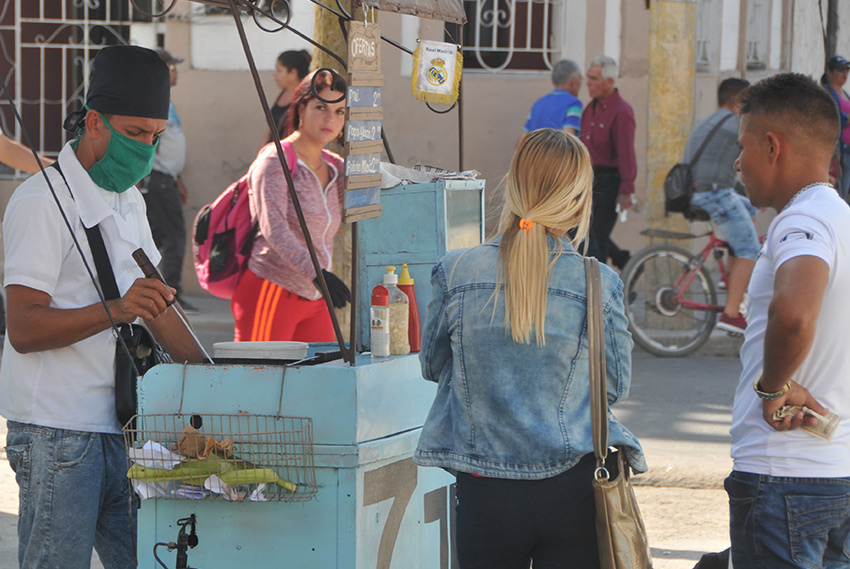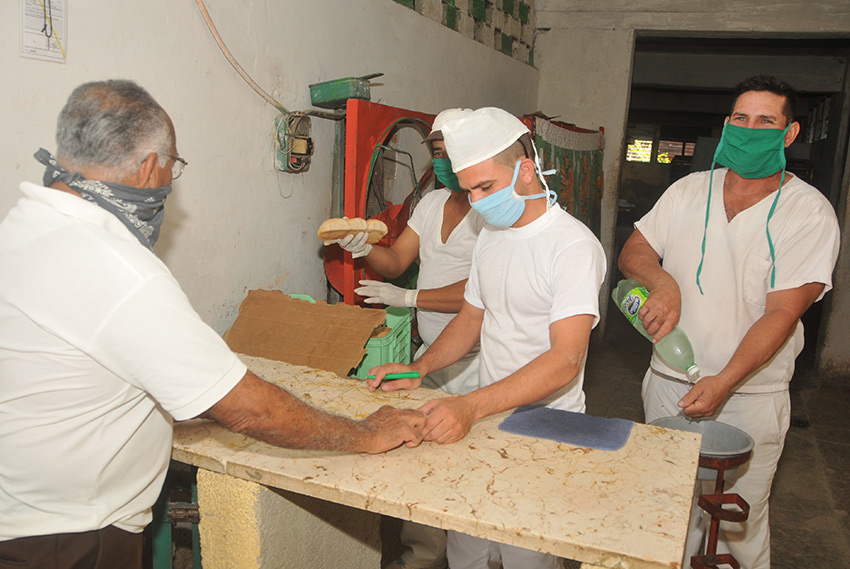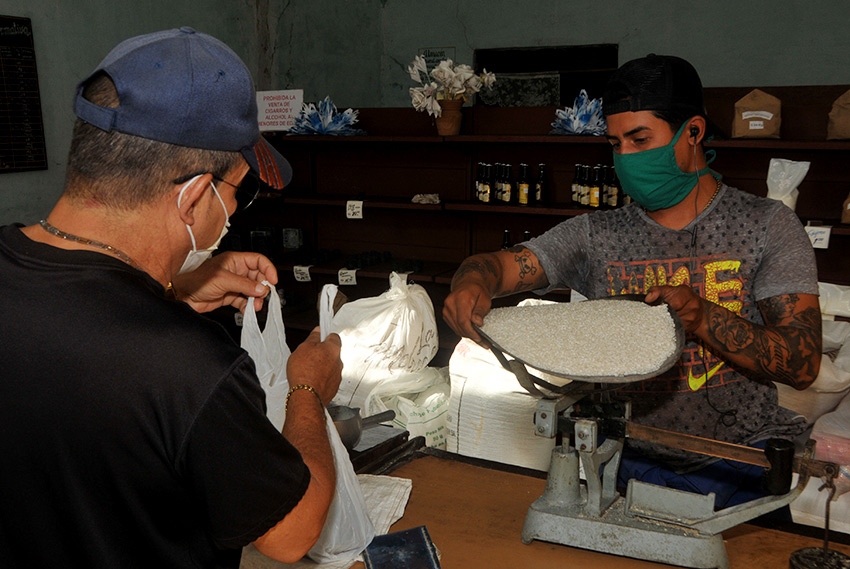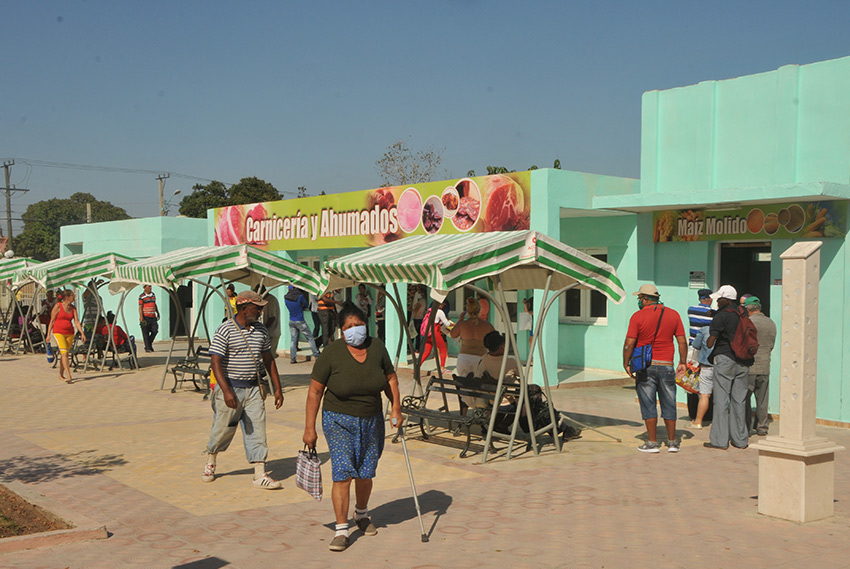
"This year took us by surprise and shook us up quite a bit... there was fear, scarcity, lack of indispensable products, but we must admit that the population was protected, the strategy of selling the food and hygiene kits through the supply book was created and I imagine that it will continue to be like that," says Ada Iris Lozano, a neighbor of the Buena Vista neighborhood.
Las Tunas, Cuba - Joseíto Suárez is much more optimistic: "Las Tunas was a reference for another province. We organized ourselves better and from the beginning. The few food and cleaning products were shared among all of us, which is a high response to the crisis."
Maintaining the cleanliness through the notebook is one of the best measures taken during the year," says Alicia Báez, in the vicinity of Casa Piedra. "With regard to the food and hygiene kits, I think that from an organizational point of view it could have been better since there are regulated sales stores that made much more sales than others. There was a lack of check-ups and control."
THE CHALLENGE OF SHARING
The 2020 scenario, sharpened by the demands and impossibilities brought by the arrival of the Covid-19 to Cuba, demanded quick and accurate strategies from the Business Group of Commerce in Las Tunas, a challenge that was faced from the premise of giving more prominence to the regulated sales stores and bringing the products closer to the communities.
 Since the threat of the coronavirus spread throughout the national territory, the Gastronomy in Las Tunas adopted strategies to maintain the vitality of its services and bring them closer to the population, especially the most vulnerable, and thus avoid crowds of people.
Since the threat of the coronavirus spread throughout the national territory, the Gastronomy in Las Tunas adopted strategies to maintain the vitality of its services and bring them closer to the population, especially the most vulnerable, and thus avoid crowds of people.
The 57 restaurants of the province worked at 50 percent of their installed capacity, that is, with a separation of one and a half to two meters between each table, but without affecting the services, since the schedules were extended.
There were 69 points between restaurants, pizza shops, cafeterias with foodservice and restaurants, where the take-away or home-delivery modality was implemented. Around 116 facilities were put into operation to guarantee food for the Family Assistance System (SAF), with around 3,849 linked people.
The 10 elaboration centers of the province were fundamental support to keep the nets supplied with croquettes, fried food, hamburger, and sausages, especially chorizo.
All the establishments of Commerce and Gastronomy continued elaborating food and selling it to the people. Ice Cream Shops remained open and encouraged the take-away modality.
THE PRODUCTS, IN THE PROXIMITY OF THE COMMUNITIES
The Domestic Trade sector, as part of the Plan for the Prevention and Control of the COVID-19 in the territory, implemented a series of measures that ensured a better redistribution of supplies, bringing food and hygiene kits of nine products to the warehouses, to reinforce the feeding in Las Tunas.
 Through this strategy, a liter of syrup, 10 soft drinks in bags, five pancakes, a package of cookies; in addition to soy yogurt, cottage cheese, croquettes, mincemeat, and red mortadella were marketed. In the case of the yogurt, the same points of sale for milk were used for the sale, the meat products arrived in the network of stores and the dry ones were distributed in the regulated sales stores.
Through this strategy, a liter of syrup, 10 soft drinks in bags, five pancakes, a package of cookies; in addition to soy yogurt, cottage cheese, croquettes, mincemeat, and red mortadella were marketed. In the case of the yogurt, the same points of sale for milk were used for the sale, the meat products arrived in the network of stores and the dry ones were distributed in the regulated sales stores.
In the municipalities, conditions were also created to bring the production of the elaboration centers closer to families, in correspondence with the raw materials that these units had.
Similarly, it was decided to sell the cleaning products in a controlled way through the supply book and so far the measure remains in force. Only the liquid detergent, due to its limited production, is now sold in the regular markets.
As far as the availability of resources is concerned, some of the foodstuffs released, such as sugar and cornflour, were sold in a staggered manner in different regulated sales stores in the province.
The commercialization of the products of first necessity, like chicken and oil, through the supply card (without it being written down) for each family nucleus, was put in practice and it is still maintained, by means of a defined inventory and taking into account the regulated sales stores, following the order established by the councils of Defense and by the direction of Commerce, accordingly with the inventories that the store nets have.
The people's councils also set up community kitchens and guaranteed food for the most vulnerable people, especially the elderly, the sick, and low-income families.
THE RETURN TO NORMALITY AND CURRENT DEMANDS
 With the gradual approach to normality, the units of the Business Group of Commerce in Las Tunas resumed their operation and the industrial stores and markets reopen their doors with the range of products that are usually sold in their networks. As in the whole year, the sale of chlorine is maintained in the defined points of the eight municipalities.
With the gradual approach to normality, the units of the Business Group of Commerce in Las Tunas resumed their operation and the industrial stores and markets reopen their doors with the range of products that are usually sold in their networks. As in the whole year, the sale of chlorine is maintained in the defined points of the eight municipalities.
As a guarantee, the protocols guided by the Ministry of Public Health continue active in all the entities of Commerce and Gastronomy; the disinfection of the hands and surfaces at the entrance of each local will be guaranteed and in the same way, it will be watched over with rigor that the workers with respiratory symptoms do not attend any establishment, neither interact with the consumers.





